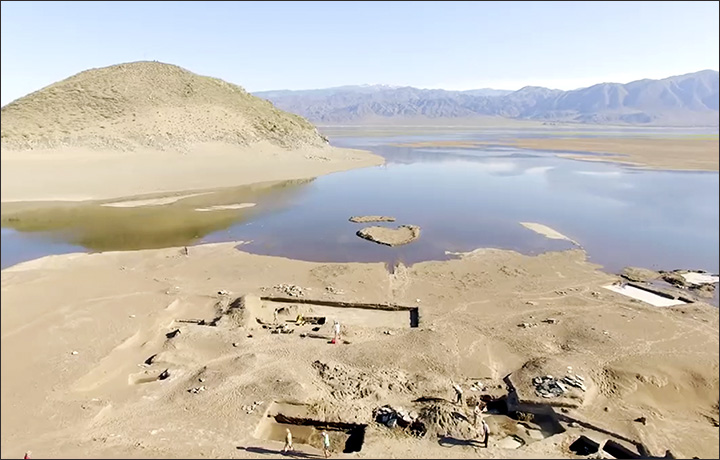
An old-arse site – with cool old shit in it from the Bronze Age to the time of Genghis Khan – has just popped out of the Sayan Sea in Siberia, and, would you believe it, archaeologists are mad for it.
[jwplayer 1glBezXf]
After years of being gently chided for studying history on a tertiary level, these nerds have been able give an archaeological site a name, and they went with ‘Russian Atlantis’, as 9News and The Siberian Times write.
Russian Atlantis is a 600-square-kilometre area located in the mountainous Tuva Republic at the bottom of the Sayan Sea, which, when the 15-metre waters recede from mid-May until late June every year, becomes a fkn treasure trove.
Ancient human remains? You betcha. Artefacts like bronze bulls and snakes, trinkets, jewellery with tigers on it? Russia‘s got them all. Silk, mirrors, coins from the Han dynasty? They’re there. It’s a fire sale for old af stuff – from the ancient, nomadic Hun people approximately 2000 years ago – coming straight outta the depths of the blue, blue water.
An actual learned person, the leader of the Tuva Archaeological Expedition, will explain the old stuff’s import, Dr. Marina Kilunoskaya from the St Petersburg Institute of Material History Culture. She describes Russian Atlantis – say that like you’re Scottish singer Donovan – as “a scientific sensation“.
“We are incredibly lucky to have found these burials of rich Hun nomads that were not disturbed by grave robbers.”
Don’t you feel lucky?
In other news from Siberia, last year, a Russian bloke, out looking for preserved mammoth ivory, found a 40,000-year-old wolf head, preserved in permafrost on the Tirekhtyakh River.







